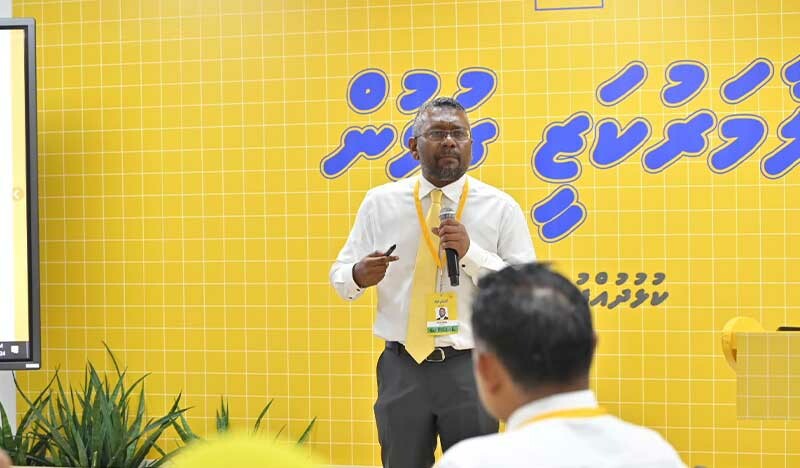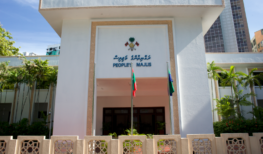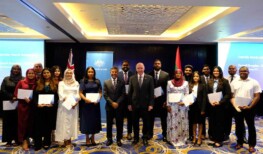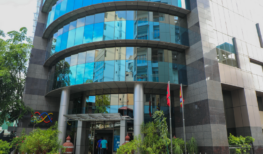Fayyaz Claims Abolishing Two-Round System is Part of Electoral Fraud Plot

Photo: MDP
Fayyaz Ismail, chairperson of the Maldivian Democratic Party (MDP), has accused President Dr Mohamed Muizzu of attempting to commit electoral fraud with his proposal to abolish the current two-round system in presidential elections.
The President Dr Mohamed Muizzu had announced his intention to call a public referendum on the issue during his Republic Day address earlier this week, stating plans to replace the existing system with a preferential voting method.
Speaking at a party rally on Monday evening, Fayyaz criticised the proposal, suggesting that the aim was to centralise power and manipulate the election process. “He talks about winning the election in a single round through a preferential system. This is another warning signal. The purpose is to bring the ballot boxes to Male’ while remaining in power, reverting to the old system of vote rigging,” Fayyaz alleged.
The opposition leader further claimed that the ruling People’s National Congress (PNC) was steering the country towards a “monarchy,” and described the proposed referendums as part of a “devious plan” to achieve this goal. In addition to the voting system, President Muizzu has also proposed referendums on reverting the start of presidential terms to November 11 and holding presidential and parliamentary elections concurrently.
Fayyaz criticised the government for deviating from the campaign promises made during the 2023 presidential election. He challenged the administration to hold the presidential election alongside the local council elections scheduled for 2027 if the government’s aim was to reduce election-related spending. He called for unity to ensure the government follows the “right track” in its future policies.
Niyaz Criticises Government’s Approach to Council Budget Cuts
Ali Niyaz, Chair of the MDP’s Decentralisation Committee, responded to President Muizzu’s remarks on councils during his Republic Day speech, arguing that reducing the number of members in island councils would not significantly impact the national budget. Instead, Niyaz proposed cutting non-elected positions in government as a more effective measure for saving funds.
Addressing the MDP rally titled ‘Laamarukazee Raajje’ [Decentralised Maldives], Niyaz rejected the President’s comments suggesting that council members were unimportant. He pointed out that these members are elected by the public and represent communities across the country.
He noted that while the government criticises council members, there are over 3,000 non-elected positions in the public sector, which account for a substantial portion of the national budget. “What I am asking is what is the reason for belittling people in elected positions?” Niyaz questioned.
Niyaz also highlighted that the number of council members on islands is determined by population size, with smaller islands having fewer representatives. He used the example of Baa Atoll’s Fehendhoo, which has fewer council members than larger islands like Raa Atoll’s Dhuvaafaru or Male’ City.
While Niyaz acknowledged that removing two members from island councils would save some funds, he argued that a more effective solution would be reducing the number of political appointees who earn significantly higher salaries. He accused the government of focusing on diminishing the role of councils rather than addressing the issue of non-elected positions.
The opposition figure also criticised the government’s decision to cut council budgets, calling for adequate funding to enable councils to effectively manage projects in their communities. He reminded attendees that during his presidential campaign, Dr Muizzu had promised to address the needs of island residents, having visited 186 islands.
However, the government’s recent proposal to establish urban centres in seven islands and relocate populations from smaller islands with fewer than 500 residents has raised concerns. Niyaz suggested that while this might have won support from smaller islands, such policies should have been more clearly outlined in the President’s manifesto.
In his closing remarks, Niyaz affirmed his belief that the Maldives should maintain its natural decentralised structure, which he argued was the most suitable approach for the country’s development.







